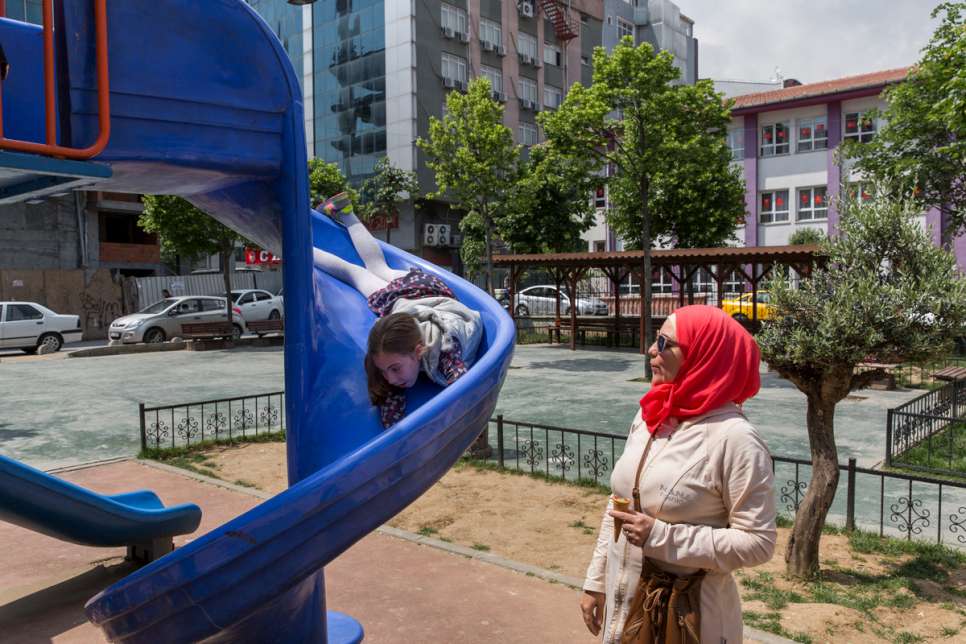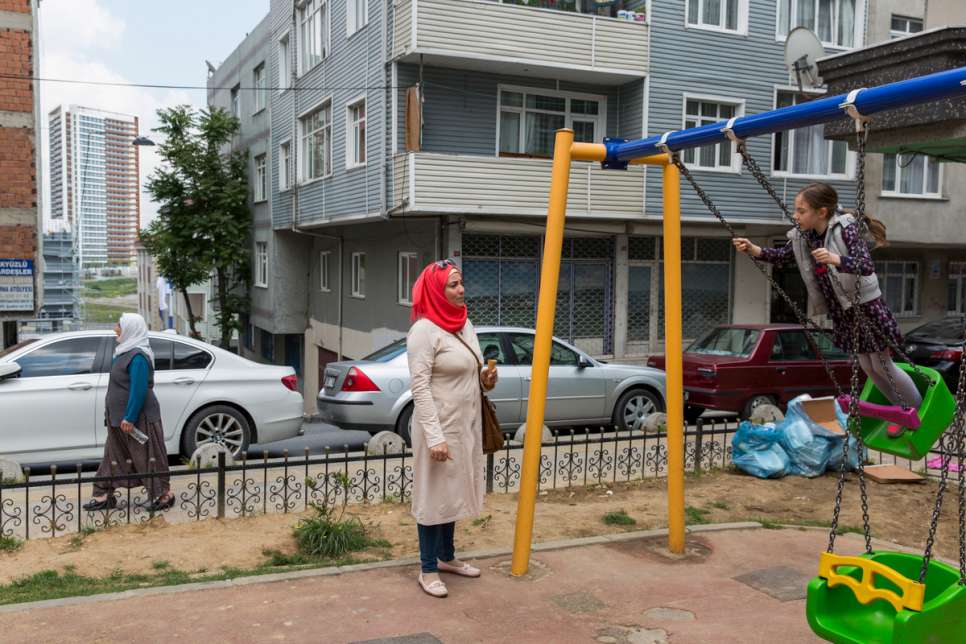At 40, Darie Alikaj can take most things in her stride. She endured the years of bombings that destroyed her home city of Aleppo in Syria. Her daily commute to work meant dashing across a military checkpoint where snipers shot and killed people every day. And she coped with the dangers of living and working in adjoining neighbourhoods controlled by opposing sides, in a protracted battle known as “Syria’s Stalingrad.”
As a medical microbiologist and head of the microbiology department at the University of Aleppo, Darie did not want to leave Syria. She moved as the war moved, shifting neighbourhoods as barrel bombs and mortar fire advanced. She stayed until the mere act of staying alive became overwhelming. Ultimately, in July 2015, Darie left Aleppo and crossed into Turkey. That was when she and her family became refugees.
“I left Syria for the sake of my daughter,” she said, as she sat in her apartment in Istanbul, watching her nine-year-old daughter, Mayas, retrace their route to safety on a map. “I want her to have a childhood. I moved her from school to school until there were no more left.”
Darie, Mayas, her husband Salahaddin Kakeeh, her two sisters and her elderly parents joined the 2.7 million Syrian refugees who live in Turkey, a country that hosts the largest number of refugees in the world. Syrian refugees here have temporary protection status, after registering with the Turkish authorities. This allows them to benefit from assistance, medical care, access to education and to the labour market, which came in January.
More than 1 million Syrians live near the Syrian border, although only 270,000 of these live in camps run by the Turkish Government. The rest are spread throughout Turkey, with Istanbul hosting nearly 400,000.
“I left Syria for the sake of my daughter.”
Darie lives in Esenler, an Istanbul neighbourhood. There are more than 10 temporary education centers for Syrian refugees which offer instruction in Arabic and many Syrian restaurants, sweet shops and cafes in the city. Mayas is in fourth grade at a Syrian school with more than 1,000 students.
Darie is a pragmatist and a planner, and the family, like many from Syria, relies on a network of relatives spread across several countries. In 2012, during the early days of the war, she transferred her family’s savings from her bank in Aleppo to her brother, Mustafa Alikaj, who has been living and working in Sweden for the past 15 years.
Two other brothers moved to Sweden three years ago. Mustafa, a driver, is the family’s anchor. He pays the rent on the Istanbul apartment of 1,300 Turkish liras a month (US$433) and supports his two brothers in Sweden.
For those who flee their country, becoming a refugee means adopting an added identity, a person now floating in the confusion between multiple worlds. Darie shields Mayas from even the word “refugee”.
“I don’t want Mayas to think of this word,” she said. “I try to occupy her mind with other things. Mayas knows we fled because of the war. I tell her we will live in a place where we will all be safe.”
It’s Darie’s smile that stands out. She emanates a positive force as she moves around her apartment, coaxing friends to eat verbat, a Syrian pastry of cheese and pistachios which she just bought from a Syrian pastry shop. But mention her husband, Salahaddin, and tears flow. On September 15, 2015, he joined hundreds of thousands of refugees crossing from Turkey to Greece, heading into Europe.
In a little over a week he was in Germany, where the Government resettled him in the town of Trier, near the border with Luxembourg. “The Germans gave him a one-year permit, but there is no family reunification,” Darie said as she wiped away tears. She said they talked every day, mostly via the Internet.
The three Alikaj sisters mirror a wider world of refugee survival. Darie teaches biology at a school and takes Turkish courses at a support office for Syrian refugees, funded by UNHCR and run by one of UNHCR’s partner, that assists some 35,000 Syrian refugees in Istanbul.
“I miss my research. I want to teach in a university.”
Iman, 36, works 12 hour days, six days a week, folding and sorting clothes in a factory. She earns US$300 a month. The youngest Dania, 23, is studying pharmacy at Istanbul University and was awarded a scholarship granted within a programme funded by UNHCR and implemented with the Presidency for Turks Abroad and Related Communities (YTB) to study Turkish. She wants to stay in Turkey and finish her education.
In the Alikaj apartment, the television is always tuned to a Syrian news channel. Darie’s father, Mahmud, 74, sits crying as he watches footage of explosions in Aleppo. Then she beams as her daughter draws the face of a smiling woman: hope and pain intermingled.
“I love it here,” Darie said. “I have friends here. But this is not something permanent. My husband is not here. I miss my research. I want to teach in a university.”









